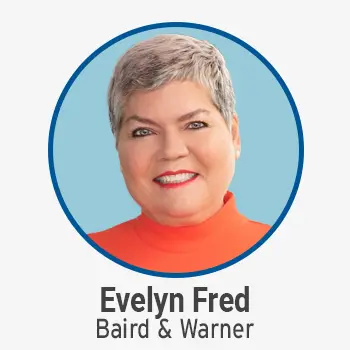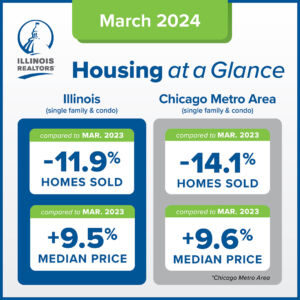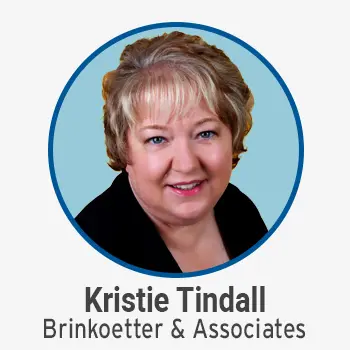A Question of “Community,” Contracts & Scope of License
Illinois REALTORS® has recently discussed the requirement to present all offers to clients, even if they arrive on a cocktail napkin or a form contract from another board. Generally, this advice stands. Sellers typically don’t care how a well-qualified offer arrives – only that it does arrive so negotiations might commence.
In “the old days,” offers were hand delivered by the broker working with the buyer to the seller’s broker. Not so very long ago, the offer might have been “faxed” from the buyer’s side to the listing broker. Today, the offer is likely sent electronically from one broker to another from their desktop, laptop, phone or even their smart watch.
With advances in technology, geographic boundaries seem to be blurring or disappearing altogether. Where a city, town or neighborhood might have limited the broker’s community or sphere of influence, such is no longer common. A broker with the proper license could work from almost anywhere. So, why are we concerned about “community?” In the general sense, REALTORS® care about community because that is where they work, play and make their living within their sphere of contacts. But now we are witnessing the expansion of community and markets. Geographic boundaries are fuzzier due to the ability to reach each other virtually. Communities are and will continue to be ever-changing. Folks are even able to interact in the “metaverse.”
While this is interesting (and maybe a little mind-blowing depending on your age or experience), let’s take a laser focused look at how the definition of community might affect real estate brokerage. Specifically, let’s examine the use of form purchase contracts by brokers assisting their clients to buy real property, and the very real problems that might result for brokers when the form contract differs from one community to the next.
Some form contracts contain attorney review provisions. As a result, it is quite common for both parties to seek attorney assistance in their real estate sales transactions. However, there are plenty of form contracts in other communities that don’t contain attorney review provisions. The absence does not mean that attorneys should never be consulted, or that they are not needed. Whether the form contains an attorney review clause or not, real estate brokers must always avoid engaging in the unauthorized practice of law (UPL).
This question is cropping up often where offers arrive on form purchase contracts from outside one’s geographic community. Remember the general rule that all offers must be presented to the seller and counters presented to the buyer until negotiations cease. But what’s the broker to do when one party has an attorney, and the other party does not? The answers and analysis still lie within the Chicago Bar Association v. Quinlan & Tyson, Inc. case (Q&T). 214 N.E. 2nd 771. Despite this Illinois Supreme Court decision being rendered in 1966, it is instructive on questions distinguishing real estate brokerage activities and legal work. The Q&T court opined that the real estate broker (the decision uses the terms “salesman”) could complete business and factual information on a form that is commonly used in the community in furtherance of providing brokerage services. Herein lies the question…what is “community” today, and how can brokers avoid UPL where form contracts are unfamiliar?
There are many different form contracts and many overlapping communities*, so Illinois brokers are bound to see many different forms.
What should a broker do about all of this? Following is a list of “best practices” that can guide brokerages as the concept of “community” evolves and expands:
- Always present offers and counteroffers to your clients regardless of the form on which they are printed. Note that clients might lawfully require a particular closing window, but contrast that with seller requiring a particular form. Sellers likely don’t care about the form.
- Start with a form with which you are familiar. You are safe to complete business and factual information in the blanks of your “local” or “regional” form.
- If a counter comes back on another form, present that to your client and where your client has questions about meaning, interpretation, legal effect or the proper response to accomplish something your client wants, recommend they seek advice from their legal counsel.
- Avoid drafting substantive language in a contract to which you are not a party (If you are an actual party to a contract, you can serve as your own “attorney,” and we know what they say about that…). Note you are not a party to a purchase contract where you represent the buyer or the seller. The parties are the buyer and the seller. This includes writing sentences where a form contains blank spaces that indicate more than factual information like name, address, city, state, price, dates, etc. is needed.
- Avoid advising a client on the legal effect or meaning of a contractual provision. If you have a general understanding, make that very clear to your client along with strongly suggesting that your client seek legal advice.
- Follow your client’s lawful direction. For good or ill, sellers and buyers are free to act without attorneys. Make sure you are “on the record” as advising use of an attorney when a question arises regarding the contract. Sometimes, you will need to suggest legal advice before an attorney review period. Also, if you believe your client’s direction is unlawful, i.e., discriminatory against a protected class, strongly advise legal counsel and ask your own attorney about terminating the relationship.
- Remember that your real estate license allows you to perform real estate brokerage activities. Your company E&O insurance covers your practice as a broker. Likewise, the attorney’s license allows them to give legal advice and their insurance covers those activities. The licenses and coverages are not interchangeable.
- As “community” expands, recognize that you will likely see forms with which you are unfamiliar. Many will contain similar provisions. Keep your advice to your client within the scope of your real estate license and your expertise. Defer to your client’s attorney for legal advice. If your client chooses not to consult an attorney, that is their prerogative, but the client must make their own decisions and you mustn’t substitute your judgment or advise them on legal matters.
- If an attorney suggests that you are engaged in UPL simply because your client elects not to consult an attorney, make sure you are strictly following your seller’s direction. For example, if your seller client is not using an attorney and the buyer has an attorney, your seller client can properly direct you to receive and deliver documents to the seller. Be the seller’s messenger, not the seller’s de facto and unlicensed lawyer. You can advise your seller on issues like pricing, property features and market conditions, but not drafting a contract contingency.
Time and practice will tell us what defines the community in which real estate brokers practice. In the meantime, present everything, assist your respective clients to the best of your ability and professional expertise and recommend legal counsel when the situation dictates that you do so.
*Community has been defined by a court ordered consent cecree in Winnebago County, Illinois. In Winnebago County, brokers and lawyers use a jointly approved form purchase contract for properties located there. Shall we shoot for a statewide form contract?!
About the writer: Elizabeth A. (Betsy) Urbance, General Counsel and Vice President of Legal Services has served the association’s members as General Counsel since 2018 and prior to that she was Legal Hotline Attorney since 1994. Urbance is a 1984 graduate of Western Illinois University and received her law degree from the University of Missouri School of Law in 1987. She is licensed in both Illinois and Missouri.





 Create professional development programs that help REALTORS® strengthen their businesses.
Create professional development programs that help REALTORS® strengthen their businesses.
 Protect private property rights and promote the value of REALTORS®.
Protect private property rights and promote the value of REALTORS®.
 Advance ethics enforcement programs that increase REALTOR® professionalism.
Advance ethics enforcement programs that increase REALTOR® professionalism.
 Protect REALTORS® by providing legal guidance and education.
Protect REALTORS® by providing legal guidance and education. Stay current on industry issues with daily news from Illinois REALTORS®, network with other professionals, attend a seminar, and keep up with industry trends through events throughout the year.
Stay current on industry issues with daily news from Illinois REALTORS®, network with other professionals, attend a seminar, and keep up with industry trends through events throughout the year.



